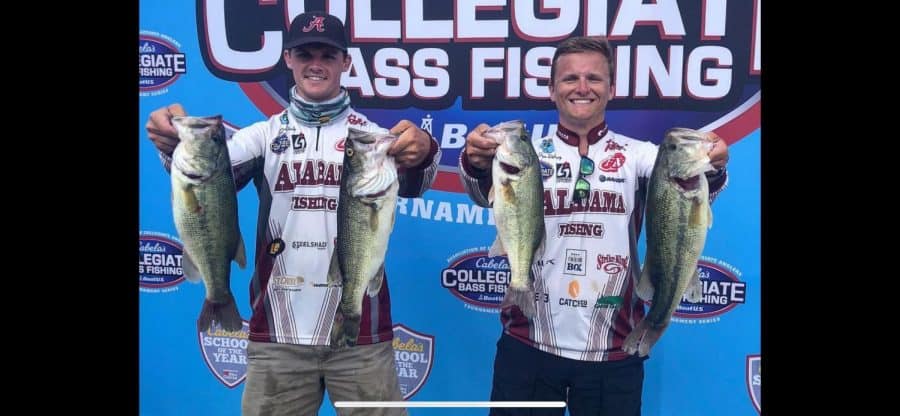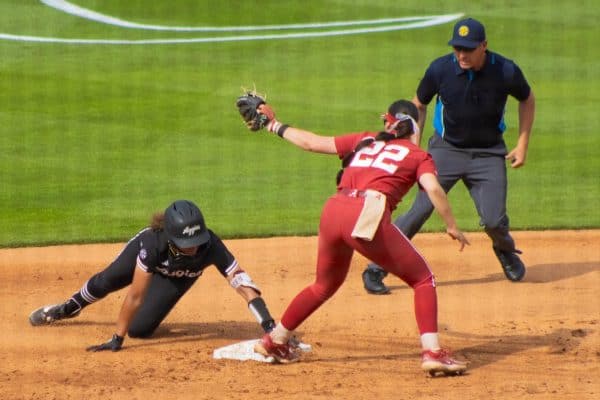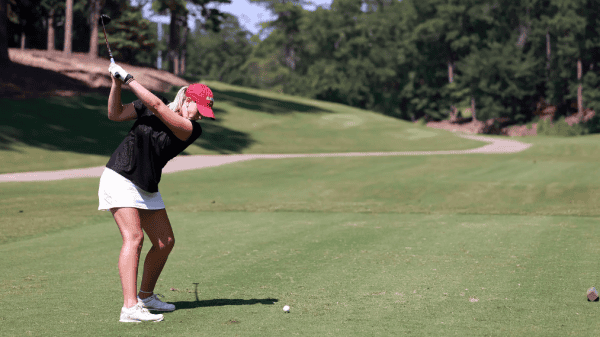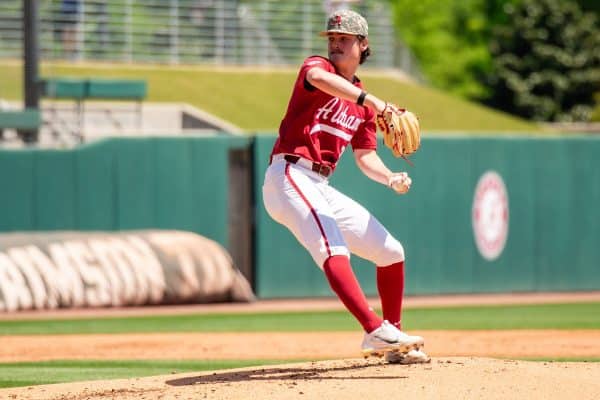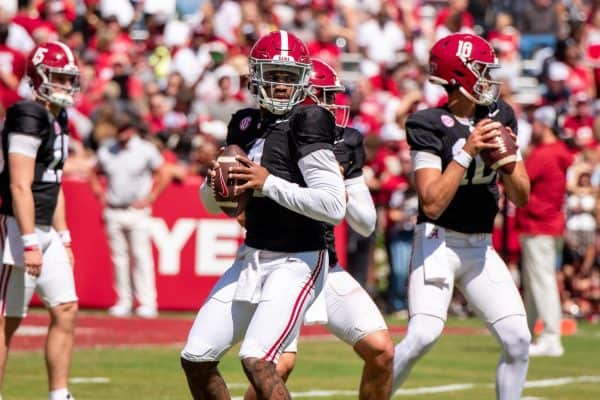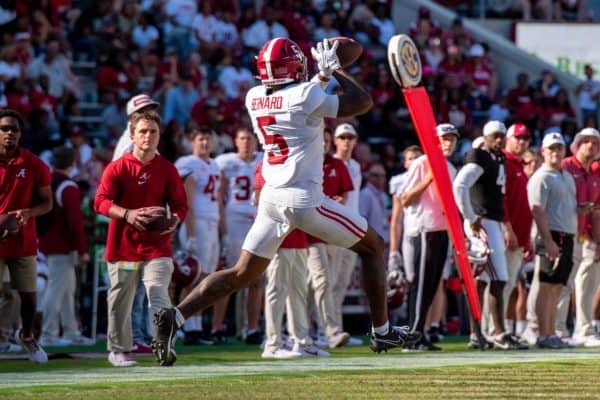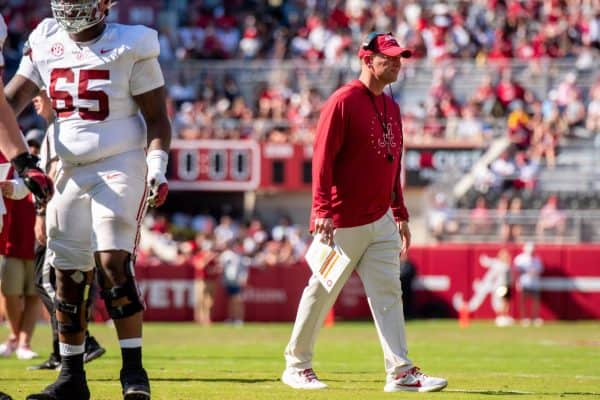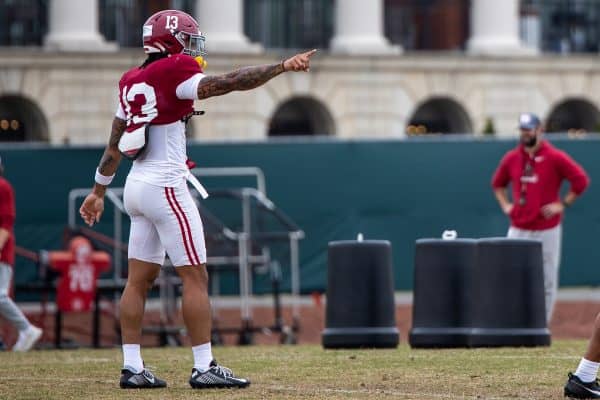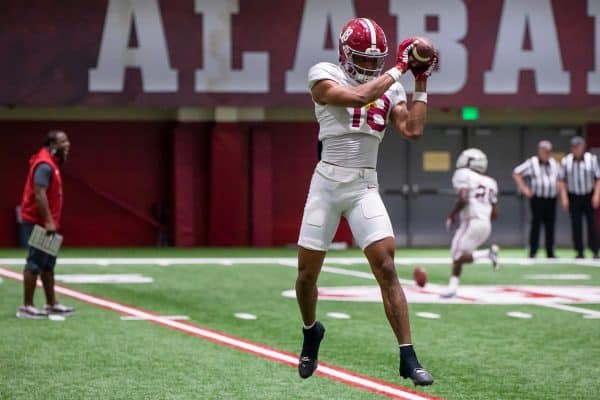Alabama fishing club continues to grow, achieve
February 25, 2019
Three years ago, 15 bass anglers from The University of Alabama brought home the highest competitive fishing achievement in the nation, the Collegiate Bass Fishing School of the Year. Fast forward to the 2018-2019 season, and the UA club fishing program has grown to 51 members from 14 different states, with a whopping 25 from out of state.
Winning seems to be the reason for the team’s recent growth. The formula worked well enough to attract current vice president and Lakeville, Michigan, native Shawn Potwardowski, who came to the University for its fishing program.
“It was between Alabama and Michigan State,” said Potwardowski, a junior studying mechanical engineering. “They were both academically comparable, but Alabama had the No. 1 school for fishing that year, so I said, ‘Heck yeah, I’m coming here.’”
Even with the accomplishments, fishing, like many club sports, is foreign to many students on campus.
“I will leave class for a tournament and someone will say, ‘We have a fishing team?’ and to me it seems obvious,” said Garrett Bates, a freshman studying business management.
Bates is in the minority on the team because he was a member of the fishing program in high school that he helped launch. His experience certainly helps but is not required for a sport that is completely student-run.
Club fishing at a public university is completely self-funded, with no one being specifically restricted to a coach or other higher level of management. Instead, someone like team president and graduate student Jacob Daily has just as much of a role in tournaments as any of the other players. The only difference is that he is elected to his position annually.
The team makes money through tiers of sponsorship. Alabama currently has Baitmate as its primary sponsor, with companies like SteelShad and Ark Rods following. The brands that give the most money receive logo reservations on the front of the team uniforms, the best advertisement spots available. In return, the players get discounts on gear and can even become individually sponsored.
The team’s credibility with sponsorships is no joke, and neither is the commitment and financial sacrifices of its own members.
“I went one morning at 4 a.m. to travel to Lake Seminole for a tournament, and that’s about a five-hour drive, so there is $200 that you have to put in your truck to pull a boat,” said Connor Caffrey, a junior studying civil engineering. “Then you have to put gas in your boat, which you use for three, four or five days straight, so it adds up quickly.”
Participation in tournaments varies greatly, as team involvement is the responsibility of each individual angler. Same goes for financial participation. The current 51-man roster would need over $30,000 to pay for the team to travel and get their desired participation at tournaments. That does not include the money needed for individuals purchasing their own equipment.
The Crimson Tide is in the majority of club teams across the country when it comes to spending since it is a public university. Private universities and fishing powerhouses such as Bethel University and McKendree University are able to not only give anglers scholarships but fund trucks and boats for tournaments as well.
Along with Bethel, Alabama is one of several college programs, including Auburn and Montevallo, that compete – and win – consistently from year to year. A common misconception when it comes to fishing is how a team can form a reliably winning program for a sport for which success relies on equipment more so than soccer or basketball.
“Equipment does make a difference because it’s like telling someone to go dig a 100-foot hole,” Caffrey said. “It will be a lot harder if you have a shovel than if you have a backhoe, but it definitely is not the main trick to winning.”
Above all, equipment is “practice,” according to Bates. If equipment was the only thing that contributed to a team’s or individual’s success, it would be hard to see individually competing players like Bates score so well on a consistent basis. He has won $3,000 in one day from an unaffiliated tournament.
Those in the fishing community recognize that, and that is all that matters for the growing club sport. Alabama shouldn’t have too much concern for their future either, because it is already developing an interest in its program from students of all ages across the country.
“We had a fifth grader from Kentucky hand-write us a letter asking about our program and what he would need to join when he gets older,” Daily said. “We sent him a letter back, and our team also decided to send him a surprise package with a team jersey and a bunch of our sponsored products.”

